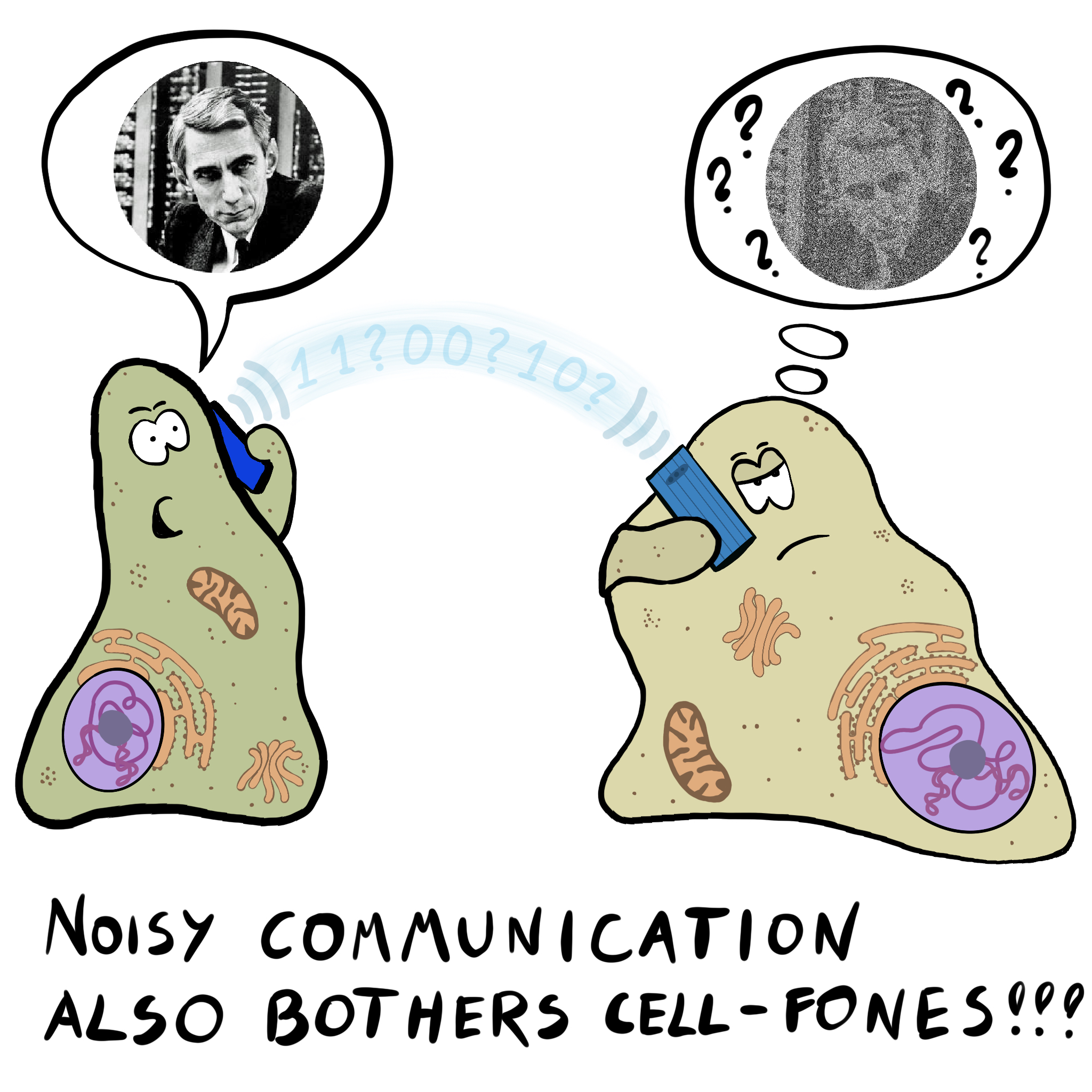Katanaev group shows how mathematical concepts may advance the understanding of oncogenic signaling pathways
Alterations in signaling pathways are implicated in cancer. After decades of research, important mechanistic details of overactivation or abnormal activation of oncogenic signaling pathways remain unresolved.
Pure mathematical concepts can help to uncover novel aspects of signal transduction
Information theory is a mathematical theory of communication, which was developed in the 1940s for man-made communication systems. It is based on the idea that information can be measured using its fundamental measure, called entropy, in the same way the mass of different objects is measured. In the context of cell physiology, information theory provides a means to quantify the amount of information a given signaling pathway can reliably transmit.

Cancer can be seen as an information disease
In their recent article published in Trends in Cell Biology, Prof. Vladimir Katanaev and Dr Karolina Zielinska have overviewed the recent advances provided by information theory to the comprehension of oncogenic signaling pathways. For example, studying the TNF-NF-kB pathway - a key cascade overactivated in many human cancers - with information theory highlighted the role of noise, dynamics and environment on the amount of transmitted information.
New therapeutic avenues
The authors suggest that impaired information transmission may constitute a mechanism underlying cancer development and applying information theoretic approaches could open new avenues for drug development.
Posted by: Véronique Rosset
29 Oct 2019